Sick Leave: Learn How to Write a Sick Letter
Learn how to write a sick leave letter with these samples and keep your manager happy.
Learn how to write a sick leave letter with these samples and keep your manager happy.
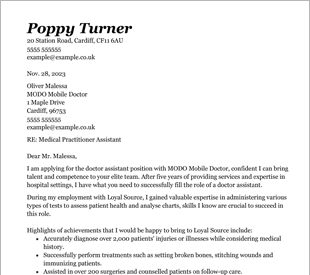
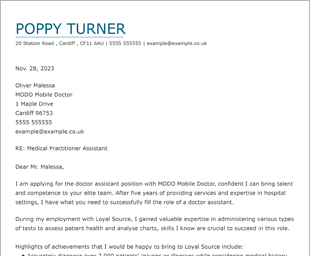
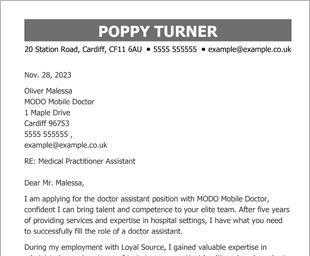
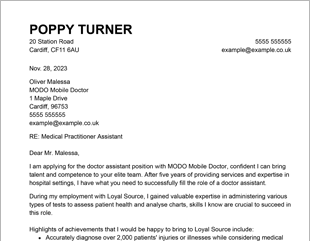
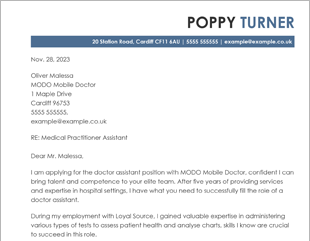
OUR USERS HAVE BEEN HIRED BY
We all get ill sometimes. It’s just a fact of life. This means that we’ll all inevitably have to take sick leave from work at some point. A professional sick leave letter notifies your employer of your condition, communicates the situation, and lays everything out in concrete terms so that everyone’s on the same page.
Here at CVHelp, we’re experts in corporate communication and want to provide you with all the tools you need to write effectively in the workplace. In this article, we look at why you might need to write a sick leave letter and how to write one, as well as provide an example of a sick leave letter to help you out.
Each company has its own policy for reporting illness. Some may require you to send a sick leave letter, while for others, a phone call or email may suffice. However, it can be good to send a sick letter even if you don’t need to, especially if you are facing a prolonged absence. It gives you the chance to set out the situation in writing, including dates and how long you expect to be off. It keeps communication clear and ensures that everyone’s on the same page. It can also be useful to ensure the HR department has a written record of when you went off sick, in the case of any claims or disputes.
Your sick leave letter should contain concrete information about your illness, how long you expect to be off work and what will happen with your workload while you’re gone. Putting all of this into a formal letter will be much appreciated by your employer, as it keeps them in the loop and makes their job easier.
Your sick leave letter should be written in the style of a typical professional business letter. Use proper letter formatting, with your full name and address and the company name and address at the top. It’s also very important to include the date clearly at the top of the letter.
Start your letter by addressing your manager with “Dear Mr. [Name],” followed by a double-line break. Then briefly introduce the letter by outlining that this is a sick leave letter notifying the company of your leave of absence.
In the main part of the sick leave letter, explain what health problems you are facing and how long you are likely to be absent from work, providing specific dates. If you have a sick note from your doctor, let them know that you’ve attached this to the letter.
Let your employer know if any of your work will be impacted and if they need to arrange any cover of work in your absence.
Thank your employer for their understanding. Little tokens of politeness and recognition are always appreciated.
Sign off your letter with a formal closing phrase, such as “Best wishes” or “Kind regards,” followed by your name and your signature if it’s a printed/handwritten letter.
Here is an example of a sick leave letter:
Using this example will help you write your sick leave letter and will ensure that you provide all the relevant information for your manager and HR department, which maintains a good line of communication even when you are absent in sickness.
We know that writing for professional purposes can be tough, which is why we have a whole host of writing guides to help you with writing letters and application documents. For example, we have a guide on How to Write a Family Emergency Leave Letter, as well as How to Write a CV and How to Write a Cover Letter.
Send a formal sick leave letter or sick leave email to your human resources department. If you are unsure of what to do, ask your manager or look into your company policy for additional information.
There is no set limit for sick leave in the UK. However, most employees take around a week of medical leave per year. If you require additional time off due to medical conditions, your employer might request a meeting or more information.
Yes. Even if you have a doctor’s note or medical certificate, some employers might still give you a formal warning if you don’t inform them of your situation. It’s important to keep your employer informed to avoid any disciplinary action.
We personalize your experience.
We use cookies in our website to ensure we give you the best experience, get to know our users and deliver better marketing. For this purpose, we may share the information collected with third parties. By clicking “Allow cookies” you give us your consent to use all cookies. If you prefer to manage your cookies click on the “Manage cookies” link below.